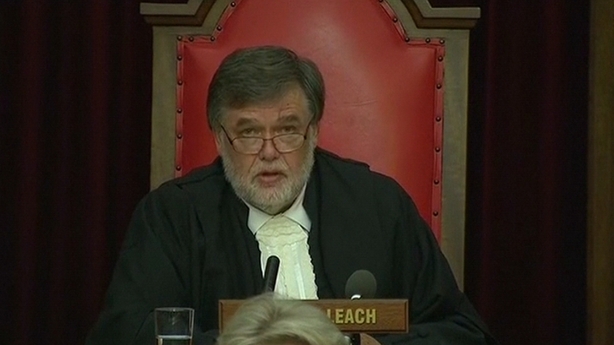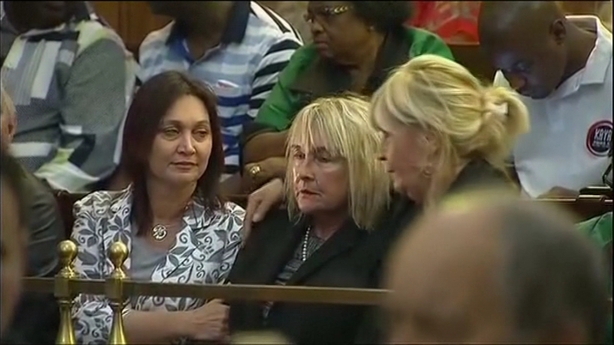Olympic and Paralympic athlete Oscar Pistorius' conviction for killing his girlfriend Reeva Steenkamp has been scaled up to murder from culpable homicide by South Africa's top appeals court.
Pistorius, known as ‘The Blade Runner’, could now be sent back to jail for at least 15 years for shooting Ms Steenkamp dead on Valentine's Day 2013.
However, Pistorius' lawyers are likely to argue that his physical disability and mental stress should be considered as mitigating circumstances in sentencing.
Reeva Steenkamp's mother listens as judge convicts Oscar Pistorius of murder on appeal https://t.co/tAUl5sNk8H
— RTÉ News (@rtenews) December 3, 2015
The athlete is expected to be sentenced for the new murder conviction at a date still to be determined.
Last year, a judge gave Pistorius a five-year jail sentence for "culpable homicide" of Ms Steenkamp, but prosecutors argued that he should be convicted of murder for firing four shots through a locked toilet door.
Pistorius, 29, left jail on parole in October and was meant to serve the rest of his sentence under house arrest.
"This is a human tragedy of Shakespearean proportions," Judge Eric Leach said as he started reading the ruling.

"Guilty of murder, with the accused having criminal intent," Judge Leach told the court in a dramatic legal reversal.
"He did not know whether that person constituted any threat."
"It is inconceivable that a rational person thought he was entitled to fire at this person with a heavy-duty firearm," said Judge Leach, who described Pistorius' testimony as "vacillating and untruthful".

"He must have foreseen that the person behind the door might be injured.
"He ought to have been convicted not of culpable homicide on that count but of culpable murder," the judge added.
State prosecutors who lodged the appeal say Pistorius intended to kill Ms Steenkamp and that she fled to a toilet during a row.
Pistorius denies deliberately killing Ms Steenkamp, saying he mistook her for an intruder at his home.
At the original trial in September last year, Judge Thokozile Masipa ruled that the state had failed to prove intent or "dolus eventualis", a legal concept that centres on a person being held responsible for the foreseeable consequences of their actions.
Dolus eventualis refers to whether a person foresees the possibility that his or her action will cause death but carries on regardless.

Ms Steenkamp's father said he was "satisfied" with the ruling.
Speaking to television reporters shortly afterwards, Barry Steenkamp said: "I'm satisfied with everything now.
"I would hope to God that all of this could have been prevented, but seeing that it has been done, let us now all get on with our lives."
Mr Steenkamp also expressed his relief, saying that he feels "it is a fair decision that the judge gave."
The father of Ms Steenkamp today said he felt a sense of "relief".
"It's a big relief. I feel it's a fair decision that the judge gave," Barry Steenkamp said, before breaking down in tears.

